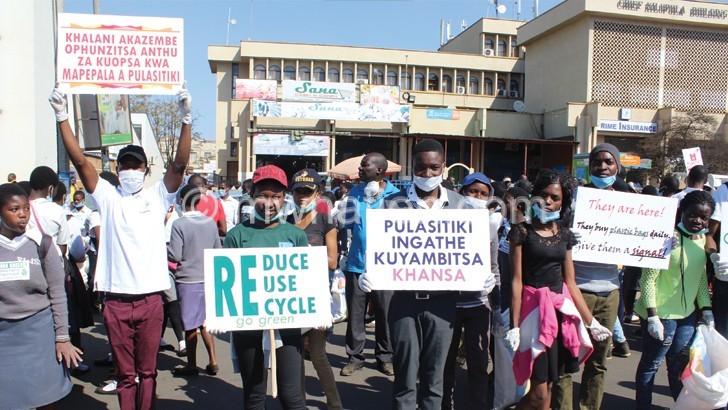Govt ponders total ban on single-use plastics
Government is weighing a complete ban on single-use plastics by reviewing the current regulation.
Nearly 75 000 tons of plastic paper is produced each year in the country and 80 percent of these are single-use plastics.

Studies show that waste from such plastic has a huge impact on the environment, animals and people. Apart from littering the landscape, thin plastics also clog drainage systems and waterways—creating a breeding ground for killer malaria-causing mosquitoes.
The planned review of the regulation follows a ban in 2015 of production, distribution and importation of plastics of 60 microns in thickness.
Currently, manufacturers who violate the ban face fines, closure of factories and seizure of prohibited products.
In an interview on Thursday, Environmental Affairs Department principal environmental officer Peter Magombo said government has stepped up enforcement of the law so that the problem does not reach crisis proportions.
He said: “We plan to review the regulations so that we have a complete ban of plastics in Malawi. Plastic waste has not reached crisis levels yet, however, should production and distribution continue, chances are high that we will reach that level.”
Magombo praised a section of companies that have been compliant with law on thin plastics.
“Some have introduced recycling plants which use plastic materials bought from communities around town and have them recycled. In that way they are reducing filth and nuisance in the environment,” he said.
Centre for Environmental Policy and Advocacy (Cepa) is backing a proposal of total ban on use of thin plastics in the country.
In an interview, Cepa programme officer Gloria Majiga-Kamoto said they are implementing various projects to raise awareness around the thin plastics because it is a serious challenge facing the country.
Said Kamoto: “Many companies are [still] producing the plastics illegally. So, people need to be part of the enforcement by reporting such companies.
“Plastics are not good for the environment with their delayed rate of decomposition in the environment. They also offer a habitat for multiplication of disease-causing organisms and may kill livestock if ingested.”
She said effecting a total ban on importing, producing, and distributing and use of thin plastics in the country would put it on the list with other African countries such as Rwanda and Tanzania which are managing plastic pollution well.





